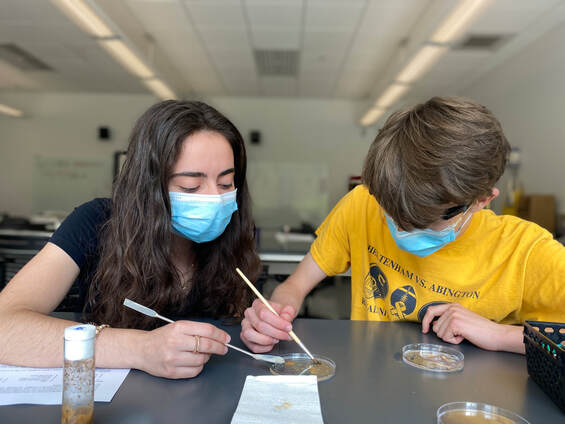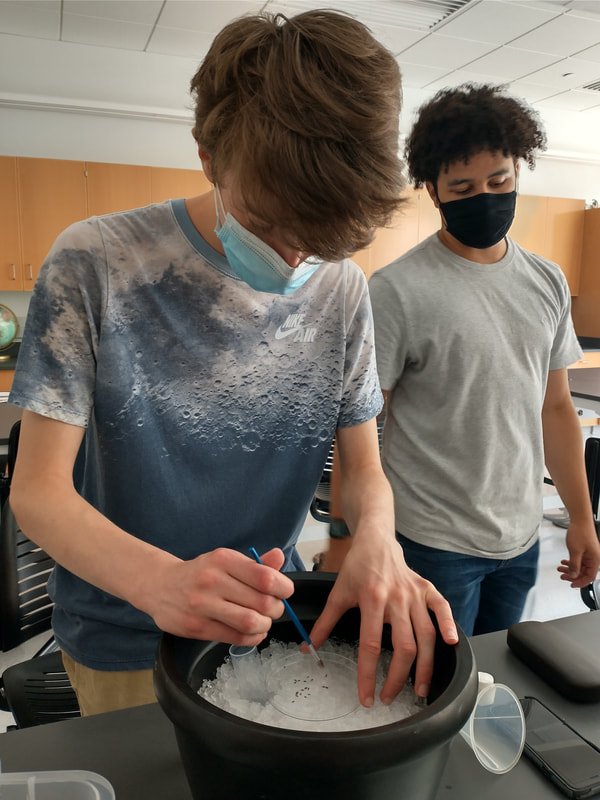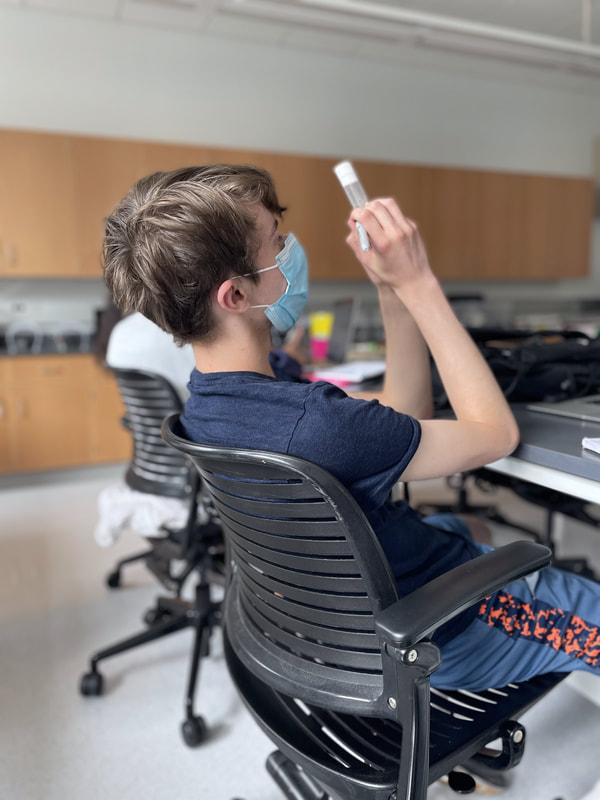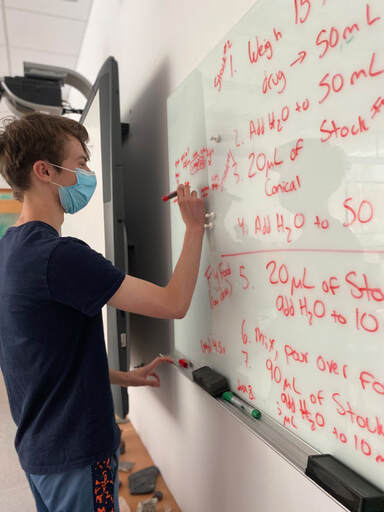|
As we start day 6, I can’t believe TRIP is already halfway over. We collected our last set of developmental data today to wrap up our introductory experiment. In this experiment I was looking at whether a supplement of vitamin E can help mitigate concussion’s effect on overall health. To measure health, I performed the negative geotaxis assay. This works by measuring how many adult flies climb from the bottom of the vial fast versus slow. We assume that flies that climb fast are healthy, and ones that climb slower than average are sick or impared. I also counted how many flies reached the halfway point of their life cycle to measure reproductive success. This Tuesday, we started our independent projects. In mine I’m looking at the effects of Xylitol on overall health. To measure this I’m using the larval locomotion assay. This one is similar to the negative geotaxis assay in adults: we just measure how far the larvae move. We make the same assumption that fast ones are healthy and slow ones are unhealthy. I am also working on writing an AI program to analyze this data automatically. Ironically this will probably take more time than doing it manually. I will also look at Xylitol’s effect on development. Xylitol is an artificial sweetener commonly used in chewing gum because of its positive effects on oral health. My sister also likes to chew it. After looking into the other effects of xylitol, I discovered there is evidence of a negative impact on the gut biome, but it has less of an effect on blood sugar than regular table sugar. I wondered if the positive and negative effects would cancel out, or if one carries more weight.
1 Comment
3/17/2022 05:48:59 pm
We make the same assumption that fast ones are healthy and slow ones are unhealthy. I am also working on writing an AI program to analyze this data automatically. I truly appreciate your great post!
Reply
Your comment will be posted after it is approved.
Leave a Reply. |
Archives
April 2024
Categories
All
|




 RSS Feed
RSS Feed